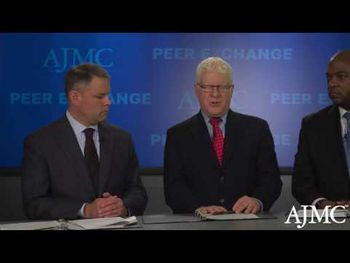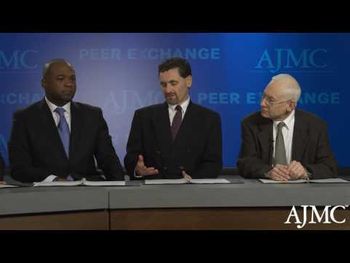
Diabetes
Latest News
CME Content












As primary care physicians and leaders of Wellframe, a mobile health company working with payers and physicians groups to extend care between visits for patients with complex comorbidities, Drs Panch and Goodman discuss their experiences building a mobile application used by elderly patients to communicate with clinicians and manage chronic disease.

The collaboration is the latest in a series of partnerships for diabetes care announced by the medical device maker.

Results from the phase 3 trials will be presented next month at the American Diabetes Association Scientific Sessions in New Orleans.

When providers move from employing traditional practices to new methods that are steeped in evidence, this benefits patient health. The result is higher-quality, more affordable care, often stemming from lower rates of hospital infections, readmissions, and, in general, improved outcomes.

The largest group of endocrinologists first declared obesity a disease in 2012. Guidelines call for making relief of weight-related complications the first priority, not weight loss per se.

Authors from the University of Minnesota College of Pharmacy highlight the role that pharmacists can play in care optimization for seniors with chronic conditions.

Now that Medicare is poised to pay for the Diabetes Prevention Program, the next question is how to make it scalable.

The smallest overall increase in the MMI in 15 years is masked by the fact that employees are bearing an increasingly large share of healthcare costs.

A recent study showed patients with type 2 diabetes did better if given the combination therapy at the outset than if given 1 of the components as monotherapy.

What we're reading, May 23, 2016: Oklahoma governor vetoes bill banning abortion; the FDA approved a new nutrition label highlighting sugar added; and 7 years after death panels, conversations on end-of-life planning are becoming more common.

How does the largest payer in a state with a large senior population respond to the rising need for diabetes care and prevention?

Finding diabetes and treating it early can prevent high healthcare costs in the long term, the authors day.

The updated label reflects research that shows how hard it is to consume key nutrients and maintain calorie limits in a diet overwhelmed by sugar. The label will be a legacy of First Lady Michelle Obama's focus on better nutrition to combat childhood obesity.

The authors discuss a simple strategy for payers to ensure more patients with type 2 diabetes achieve control of A1C.









